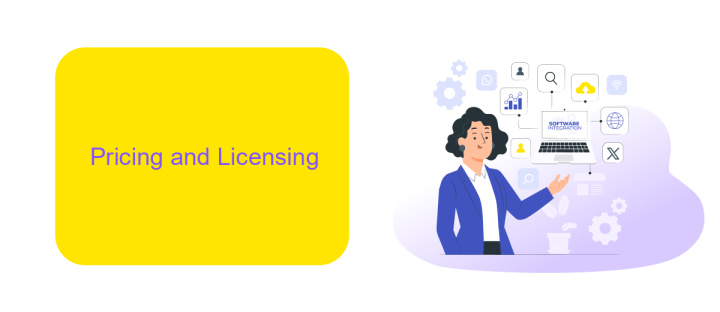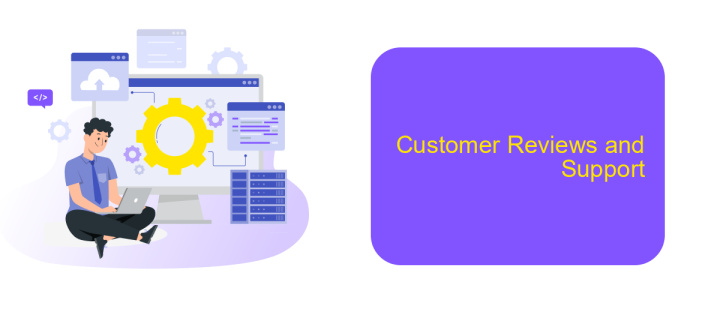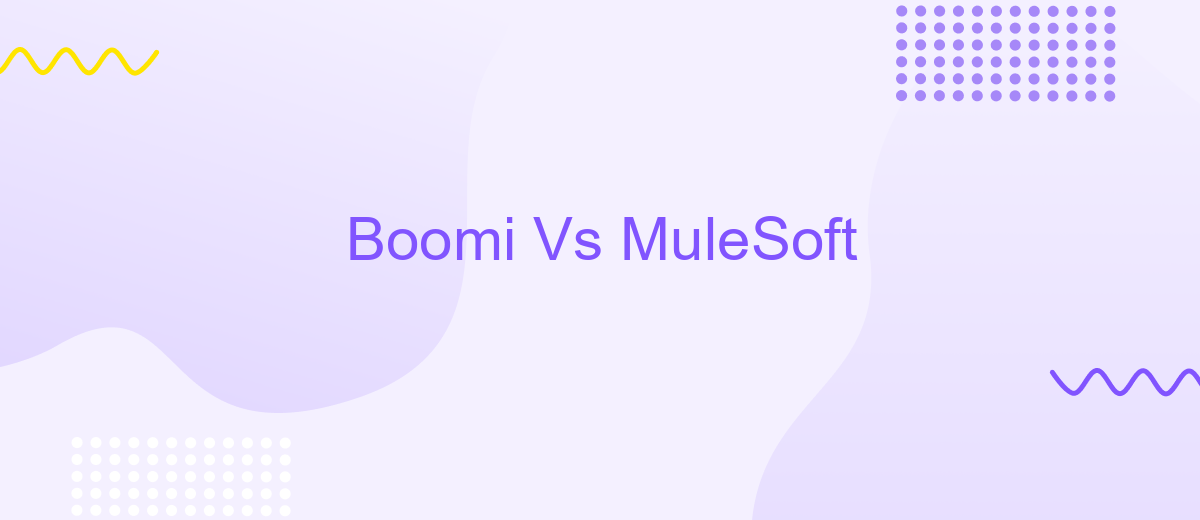Boomi Vs MuleSoft
When choosing an integration platform, businesses often find themselves comparing Boomi and MuleSoft. Both are leading solutions that offer robust tools for connecting applications, data, and devices. This article delves into the key features, advantages, and potential drawbacks of each platform, helping you make an informed decision tailored to your organization's specific needs.
Integration Platform Comparison
When comparing Boomi and MuleSoft, it's essential to consider various factors such as ease of use, scalability, and integration capabilities. Both platforms offer robust solutions for connecting disparate systems, but they cater to different needs and preferences.
- Ease of Use: Boomi is known for its user-friendly interface and low-code environment, making it accessible for non-developers. MuleSoft, on the other hand, requires more technical expertise, often necessitating a deeper understanding of coding and integration patterns.
- Scalability: MuleSoft excels in handling complex, large-scale integrations, making it a preferred choice for enterprise-level projects. Boomi also scales well but is often chosen for mid-sized businesses due to its simplicity and cost-effectiveness.
- Integration Capabilities: Both platforms support a wide range of connectors and APIs. However, Boomi's extensive library of pre-built connectors can speed up the integration process, while MuleSoft's Anypoint Platform offers more customization and flexibility.
For those looking for an alternative solution to streamline integration processes, ApiX-Drive provides a user-friendly platform that simplifies the setup of various integrations without requiring extensive technical knowledge. This can be a valuable tool for businesses aiming to automate workflows efficiently.
Pricing and Licensing

Boomi and MuleSoft offer different pricing and licensing structures tailored to various business needs. Boomi operates on a subscription-based model, providing a range of plans that cater to small businesses, mid-market companies, and large enterprises. Pricing is typically based on the number of connections, data volume, and additional features such as advanced security and compliance tools. Boomi's flexible pricing allows businesses to scale their integration needs without significant upfront costs, making it an attractive option for growing companies.
MuleSoft, on the other hand, offers a more enterprise-focused pricing model. It provides a tiered approach with options for different levels of service, including a free trial, a standard plan, and premium packages with advanced capabilities. Licensing is often based on the number of cores or processing units, which can lead to higher costs for extensive integrations. Both platforms offer extensive support and documentation, but for businesses looking for a more straightforward and cost-effective solution, services like ApiX-Drive can simplify integration processes with competitive pricing and user-friendly interfaces.
Features and Capabilities

Boomi and MuleSoft are two leading integration platforms that offer a wide range of features and capabilities to streamline business processes and enhance connectivity between applications. Both platforms aim to simplify the integration landscape but differ in their approach and specific functionalities.
- Boomi: Offers a low-code development environment, extensive pre-built connectors, and real-time data integration capabilities. It also provides robust API management, enabling seamless connectivity across cloud and on-premises applications.
- MuleSoft: Known for its API-led connectivity approach, MuleSoft provides a comprehensive Anypoint Platform that includes design, build, and manage APIs and integrations. It supports a wide range of protocols and provides advanced data transformation capabilities.
Both platforms excel in their respective areas, making them suitable for different business needs. Additionally, services like ApiX-Drive can further enhance integration processes by offering automated workflows and easy-to-use tools for connecting various applications, thus reducing the complexity and time required for integration setups.
Customer Reviews and Support

Customer reviews for Boomi and MuleSoft reveal a mix of satisfaction and areas for improvement. Boomi users often highlight its ease of use and quick deployment capabilities, making it a preferred choice for businesses with limited technical expertise. MuleSoft, on the other hand, is praised for its robustness and ability to handle complex integrations, though it may require more advanced technical skills.
Support services for both platforms are generally well-regarded, although some users have noted differences in responsiveness and effectiveness. Boomi offers extensive online resources, including tutorials and community forums, which are highly valued by its user base. MuleSoft provides comprehensive support packages, but some users feel that the response time could be improved.
- Boomi: Easy to use, quick deployment, extensive online resources.
- MuleSoft: Robust, handles complex integrations, comprehensive support packages.
For businesses looking to streamline their integration processes, tools like ApiX-Drive can offer additional support. ApiX-Drive facilitates seamless integration between various applications, reducing the complexity often associated with such tasks. This can be particularly beneficial for users of both Boomi and MuleSoft, enhancing their overall experience.
Use Cases and Industry Adoption
Boomi and MuleSoft are prominent players in the integration platform as a service (iPaaS) market, each offering unique capabilities suited to various use cases. Boomi is often favored by small to medium-sized enterprises for its ease of use and rapid deployment capabilities, making it ideal for businesses needing quick integration solutions without extensive technical expertise. On the other hand, MuleSoft is preferred by larger enterprises requiring complex, scalable integrations, often involving multiple systems and high data volumes. Its robust API management and extensive connectivity options make it suitable for industries like finance, healthcare, and retail, where data security and compliance are paramount.
Industry adoption of these platforms varies based on specific needs and resources. For instance, Boomi's intuitive interface and pre-built connectors are widely adopted in sectors like education and non-profits, where budget constraints and rapid implementation are crucial. Conversely, MuleSoft's comprehensive suite of tools and strong API governance attract industries with intricate IT landscapes. Additionally, services like ApiX-Drive can complement these platforms by offering additional integration capabilities, allowing businesses to streamline workflows and automate processes further, enhancing overall operational efficiency.


FAQ
What are the main differences between Boomi and MuleSoft?
Which platform is more cost-effective?
How do Boomi and MuleSoft handle API management?
Which platform offers better support for real-time data integration?
Can I use third-party services to help with the integration setup for Boomi and MuleSoft?
Time is the most valuable resource in today's business realities. By eliminating the routine from work processes, you will get more opportunities to implement the most daring plans and ideas. Choose – you can continue to waste time, money and nerves on inefficient solutions, or you can use ApiX-Drive, automating work processes and achieving results with minimal investment of money, effort and human resources.

